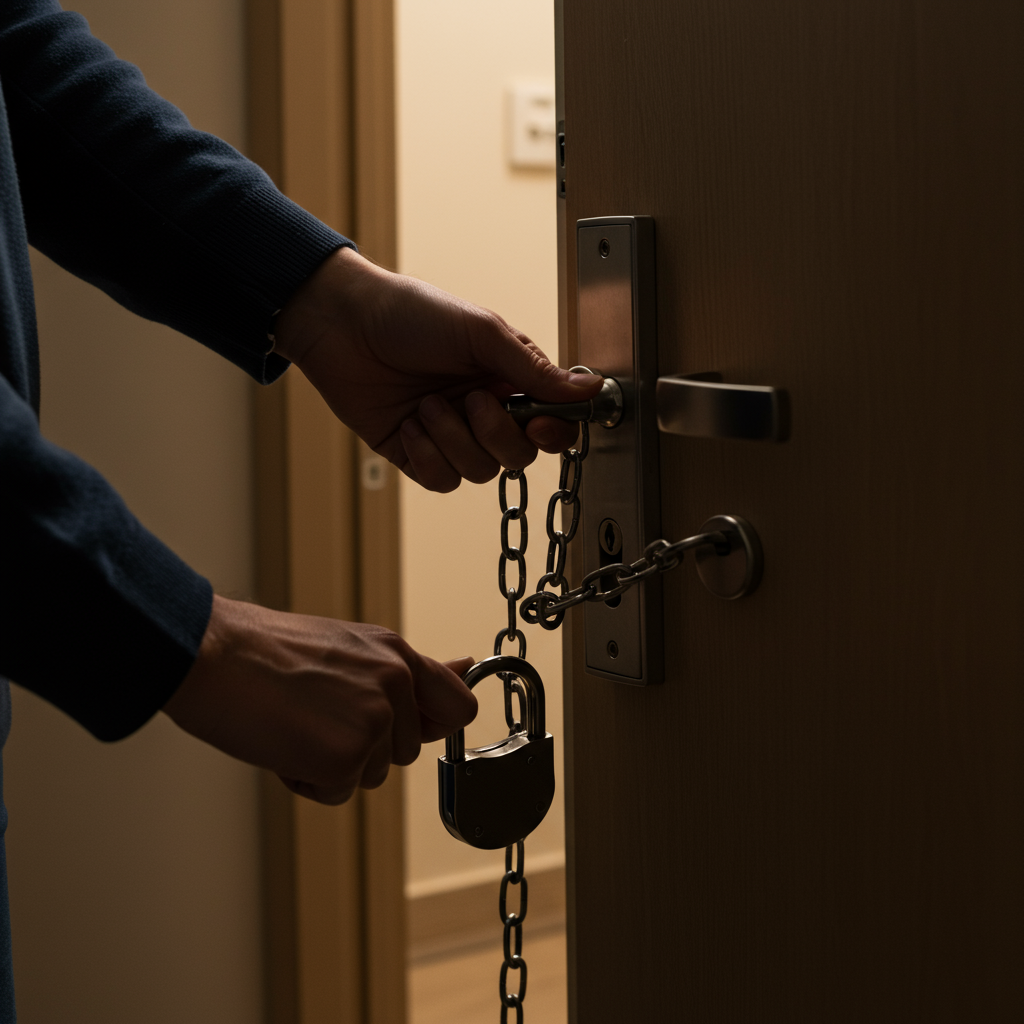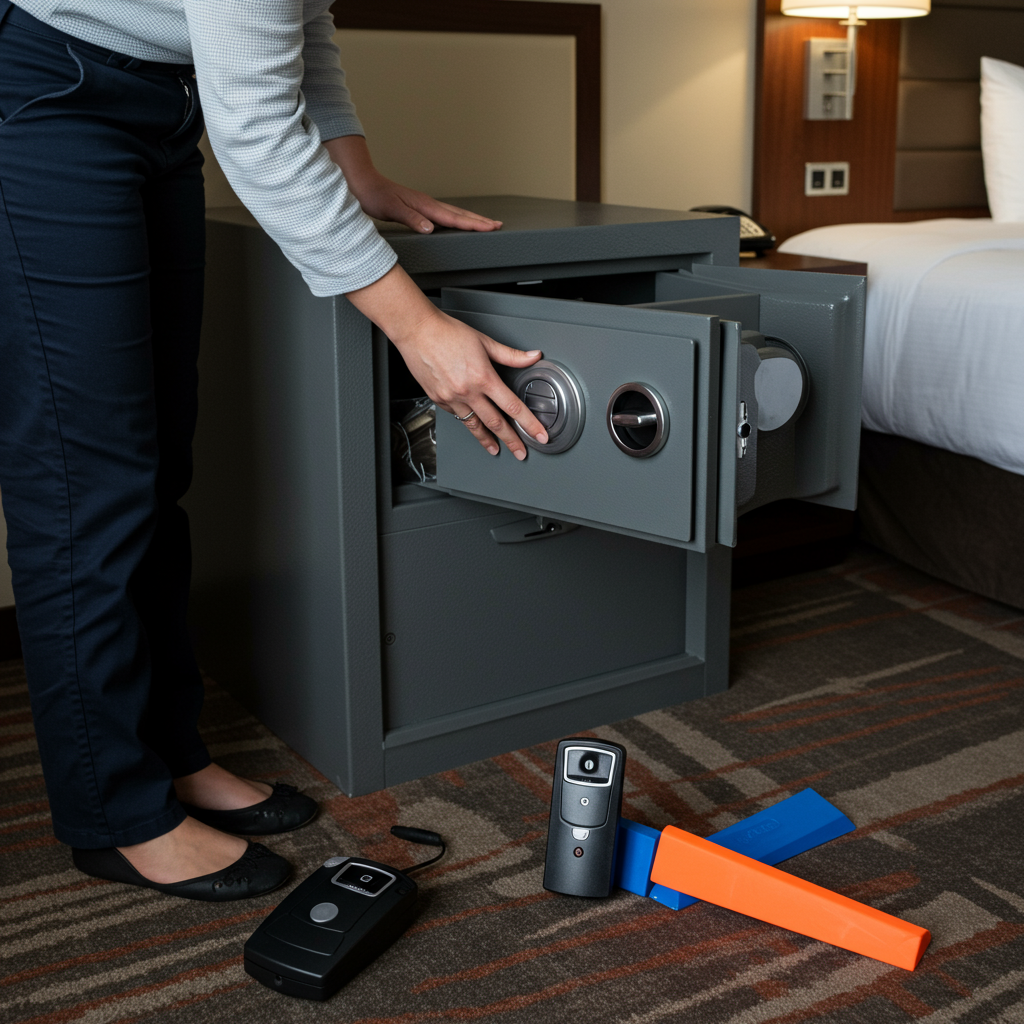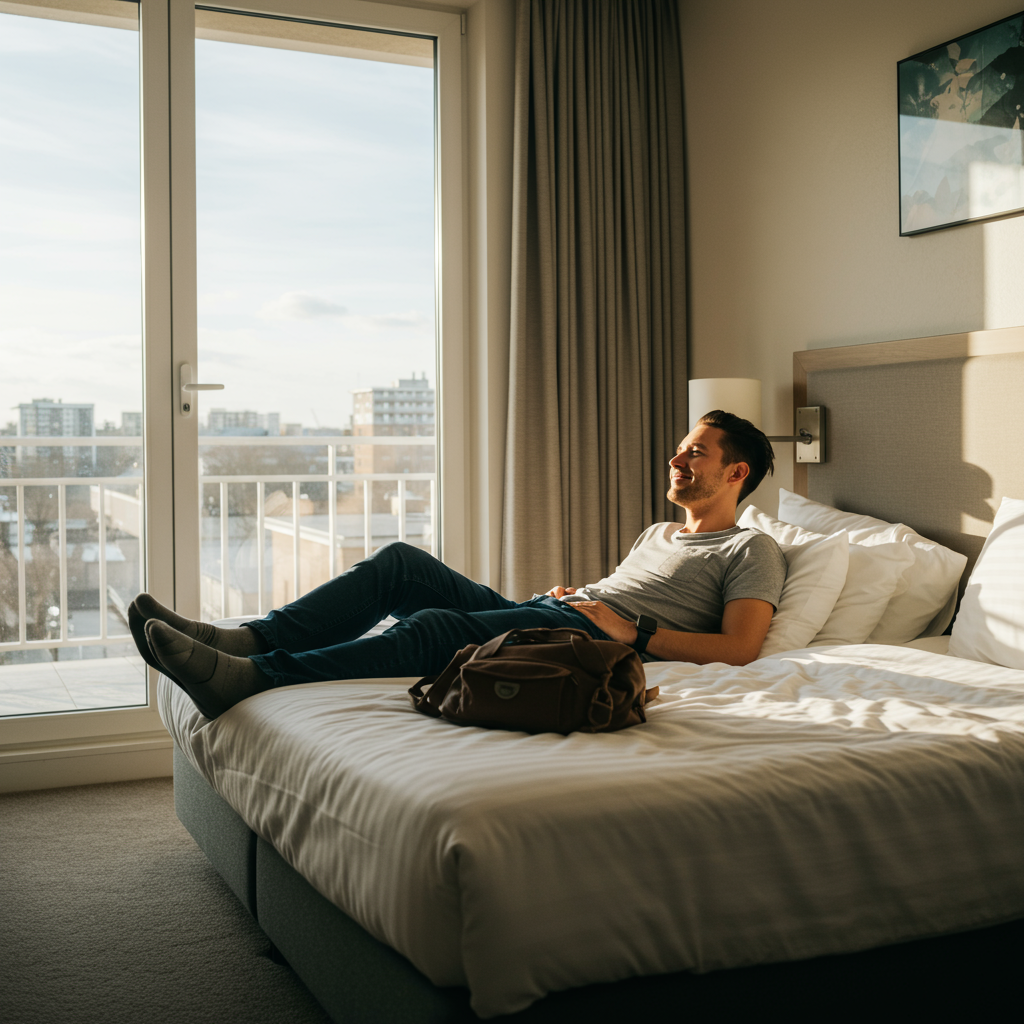
Table of Contents
Introduction
Traveling to new destinations is an exciting adventure, but it also brings the vital need to feel safe and secure in your temporary accommodations. Imagine arriving at your hotel after a long day of travel only to worry about the safety of your room, your belongings, and your personal security. For every traveler, hotel room safety is a crucial topic that demands attention to ensure a peaceful and worry-free stay. Safety is not just about avoiding risks but creating an environment where you can truly relax and enjoy your trip.
In today’s world, the travel industry has seen significant growth, with millions of people staying in hotels each year for business, leisure, or family visits. However, this surge in travel also underlines the importance of being proactive about personal safety. Hotel rooms, while generally secure, can sometimes present vulnerabilities that savvy travelers need to guard against. Understanding these risks and learning practical safety measures can make a considerable difference in protecting yourself and your belongings while on the road.
Many travelers share common concerns—fear of break-ins, theft of valuables, and potential emergencies. These worries are valid and highlight why hotel room safety should be a paramount part of your travel checklist. Being informed not only boosts confidence but also empowers you to take steps that minimize risks effectively. Whether you are a frequent business traveler or a first-time guest, knowing how to assess and improve your hotel room’s security is invaluable.
One key feature enhancing guest security is the availability of services like hotels with 24-hour front desk services, which provide round-the-clock assistance and monitoring. This kind of constant presence fosters an added layer of protection and swift help in unexpected situations. While these amenities contribute positively, personal vigilance remains essential to ensure a safe and comfortable stay.
In this comprehensive guide, we’ll delve into essential hotel room safety tips designed to help you protect both your personal safety and your valuables. We’ll cover practical advice for using locks and security devices effectively, managing your belongings wisely, and maintaining acute room awareness to spot any potential hazards. Being equipped with this knowledge will help you travel smarter and rest easier wherever you go.
What You’ll Learn in This Guide
This guide provides a detailed exploration of hotel room safety, keeping you informed and prepared for a secure stay. Here’s what we’ll cover:
- Lock and Security Features: Learn the importance of always using all available locks like deadbolts and chain locks. We’ll provide tips on how to check the peephole safely and use portable door alarms or wedges for that added sense of security.
- Handling Valuables: Discover strategies for protecting your important belongings. From using hotel safes when available to clever ways of keeping valuables out of sight, you’ll gain insights into reducing the risk of theft.
- Room Awareness: Understand why familiarizing yourself with emergency exits, fire alarms, and securing windows and balconies is essential. We’ll also address privacy considerations, such as being cautious about sharing your room details publicly.
- Signs and Prevention of Unsafe Conditions: Identify how to spot red flags like malfunctioning locks, poor lighting, or suspicious activity. Learn proactive steps to prevent common risks such as theft, fire, or unauthorized entry to your room.
As we move forward, this article will thoroughly discuss each safety aspect, equipping you with actionable advice and smart habits. From securing your door to spotting danger signs and responding in emergencies, you’ll find practical guidance tailored to the realities travelers face today.
By the end, you will appreciate the ease of integrating these safety tips into your travel routine, enabling a worry-free experience and the confidence to enjoy your hotel stays without undue concern. Let’s embark on this journey to make every hotel room a secure retreat where your comfort and wellbeing are the top priorities.
Now, let’s explore these essential hotel room safety measures that will safeguard your travel experiences and provide peace of mind wherever your journeys take you.

Ensuring personal safety and protecting one’s belongings during a hotel stay is a vital aspect of traveling that often goes overlooked. Building on the introductory overview, this discussion will delve into practical hotel room safety tips and recognizing unsafe conditions that travelers should be aware of. The goal is to empower every traveler with actionable knowledge so their stay is not only comfortable but secure, fostering peace of mind while away from home. These insights cover essential security behaviors, awareness strategies, and preparation methods that create a safer hotel environment for all.
Essential Hotel Room Safety Tips for Travelers
When staying in a hotel, the priority should always be safeguarding yourself and your possessions. Hotels vary greatly in their security measures, so understanding and practicing key safety habits greatly reduces risks. Travelers often benefit from familiarizing themselves with the specific security features of their room and hotel, ensuring they use locks properly, and minimizing vulnerabilities. For foundational knowledge on travel and accommodation safety, exploring general travel security information can enhance preparedness. Developing a routine of vigilance and precaution can turn an ordinary hotel visit into a much safer experience.
Safety measures extend beyond locking doors and windows; managing valuables and maintaining situational awareness within the hotel are equally important. Preventing theft by using hotel safes, keeping valuables concealed, and carrying critical documents or expensive items reduces temptation for criminals. Meanwhile, understanding emergency procedures and hotel layouts equips travelers to respond effectively to unexpected situations. Implementing these layered precautions allows travelers to enjoy their stay with reduced anxiety, contributing to an overall more pleasant travel experience.
Key Aspects of Hotel Room Security
Below are critical points for maximizing safety within your hotel room environment:
- Utilize All Locks and Security Features: Always engage the deadbolt, chain lock, or any additional security mechanisms provided by the hotel. These barriers add extra protection beyond the main door lock, making unauthorized entry more difficult. Consider supplementing these with portable door alarms or door wedges for enhanced security on any door, especially when staying in less familiar or lower-rated accommodations.
- Check Door Peepholes and Visitors: Before opening your room door, always look through the peephole to verify who is outside. If unexpected or suspicious, do not open the door; instead, confirm visitor identity by contacting the front desk. This simple act prevents potential scams or harm from individuals posing as hotel staff or delivery personnel.
- Secure Valuables Smartly: When available, use the in-room hotel safe for storing passports, cash, electronics, and other valuables. However, remain cautious, as some safes may not be fully tamper-proof. For extremely important items, carrying them personally or using locked luggage reduces risk. Also, avoid displaying expensive items in plain sight inside the room to minimize theft temptation.
- Stay Aware of Room and Exit Layout: Familiarize yourself with emergency exits, fire alarms, and evacuation plans upon check-in. Test balcony windows to ensure they lock securely and avoid rooms with broken or compromised window locks. Being aware of your surroundings improves your ability to react quickly and appropriately in emergencies, whether fire, natural disasters, or security threats.
Recognizing and Preventing Unsafe Hotel Room Conditions
Identifying signs of an unsafe environment is crucial for timely intervention and avoidance of hazards during a hotel stay. Unsafe hotel room conditions can range from faulty locks and poor lighting to suspicious individuals loitering nearby. Knowing what to watch for and how to respond empowers guests to protect their well-being proactively. Practical strategies focus on observation, communication with hotel staff, and personal vigilance tailored to common issues that threaten safety in lodging settings.
Prevention begins with careful room selection and becomes a behavioural practice maintained throughout the stay. Avoid rooms located near emergency exits that may attract non-guests, poorly lit hallways that encourage unwanted activity, or structures with visible maintenance neglect. Readily report any signs of malfunctioning security features or unusual occurrences to hotel management immediately to request repairs or room changes. Employing technological aids like portable alarms can provide additional peace of mind. Ultimately, staying alert to potential hazards while maintaining normal travel routines balances convenience and security.
Important Considerations for Hotel Room Safety Risks
Key considerations to identify and avoid risky hotel room scenarios include:
- Malfunctioning Locks and Security Lapses: Always test the lock on your door upon arrival. If it feels loose, easy to pick, or the latch doesn’t engage fully, request a room change promptly. A compromised lock negates all other security measures and invites unauthorized access.
- Poor Lighting in and Around Your Room: Well-lit corridors and entrances deter suspicious activity. If the area near your room or entry is dimly lit or has broken lighting fixtures, notify hotel management. Avoid rooms that face poorly illuminated or isolated areas, as these can increase vulnerability.
- Suspicious Persons or Activity: Be cautious if you notice unfamiliar individuals lingering near your room or hotel common areas without clear purpose. Near-neighbor travelers, cleaning staff, or hotel employees should be identifiable. Report concerns about anyone acting strangely, particularly if they attempt to gain access without proper identification.
- Be Mindful of What You Share Publicly: Avoid publicly sharing your room number or exact hotel location on social media or with strangers. This information can be exploited by criminals to target guests. Practice discretion to maintain your privacy and security throughout your stay.

